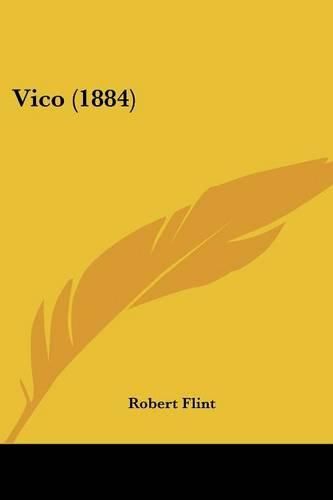Readings Newsletter
Become a Readings Member to make your shopping experience even easier.
Sign in or sign up for free!
You’re not far away from qualifying for FREE standard shipping within Australia
You’ve qualified for FREE standard shipping within Australia
The cart is loading…






Purchase of this book includes free trial access to www.million-books.com where you can read more than a million books for free. This is an OCR edition with typos. Excerpt from book: 26 CHAPTER III. LATER LITE (1694-1744)?VICO AS TEACHER AND AUTHOR. V1co found that, during his absence from Naples, there had passed over it a change which he could only deplore. He has himself specified the following as its leading features. Literary taste had greatly declined. The Greek and Latin classics were falling into neglect; people were becoming content to read them only in translations, and even writers of the highest reputation no longer sought to inspire themselves with their spirit and to rival their excellences. The vernacular poets were following in the footsteps, not of Dante or Petrarch, but of Delia Casa. The philosophy, at once so sublime and so practical, which Ficino, Pico della Mirandola, the Piccolomini, Patrizi, and many others, had taught during the sixteenth century, thereby resuscitating, as it were, Greece in the midst of Italy, was now relegated to the obscurity of some cloisters. Cartesianism had decidedly gained the ascendancy. Consequently, the study of languages and of history, literary elaboration, and learned research were despised; mathematics and physics were the only popular sciences; instruction inEuclid had teen substituted for the teaching of logic; and short routes to knowledge, easy methods, manuals, and abridgments were in’ excessive request. One explanation of physical nature had so often given place to another, that the theory and practice of medicine had become infected with scepticism. The neglect of philology had led to neglect of the ancient interpreters of the civil law, and no one seemed even to conceive that jurisprudence could be dealt with philosophically. Thus did Vico describe his own intellectual environment. He was completely out of harmony with it. He felt isolated in his generation, a stranger in his own birthp…
$9.00 standard shipping within Australia
FREE standard shipping within Australia for orders over $100.00
Express & International shipping calculated at checkout
Purchase of this book includes free trial access to www.million-books.com where you can read more than a million books for free. This is an OCR edition with typos. Excerpt from book: 26 CHAPTER III. LATER LITE (1694-1744)?VICO AS TEACHER AND AUTHOR. V1co found that, during his absence from Naples, there had passed over it a change which he could only deplore. He has himself specified the following as its leading features. Literary taste had greatly declined. The Greek and Latin classics were falling into neglect; people were becoming content to read them only in translations, and even writers of the highest reputation no longer sought to inspire themselves with their spirit and to rival their excellences. The vernacular poets were following in the footsteps, not of Dante or Petrarch, but of Delia Casa. The philosophy, at once so sublime and so practical, which Ficino, Pico della Mirandola, the Piccolomini, Patrizi, and many others, had taught during the sixteenth century, thereby resuscitating, as it were, Greece in the midst of Italy, was now relegated to the obscurity of some cloisters. Cartesianism had decidedly gained the ascendancy. Consequently, the study of languages and of history, literary elaboration, and learned research were despised; mathematics and physics were the only popular sciences; instruction inEuclid had teen substituted for the teaching of logic; and short routes to knowledge, easy methods, manuals, and abridgments were in’ excessive request. One explanation of physical nature had so often given place to another, that the theory and practice of medicine had become infected with scepticism. The neglect of philology had led to neglect of the ancient interpreters of the civil law, and no one seemed even to conceive that jurisprudence could be dealt with philosophically. Thus did Vico describe his own intellectual environment. He was completely out of harmony with it. He felt isolated in his generation, a stranger in his own birthp…